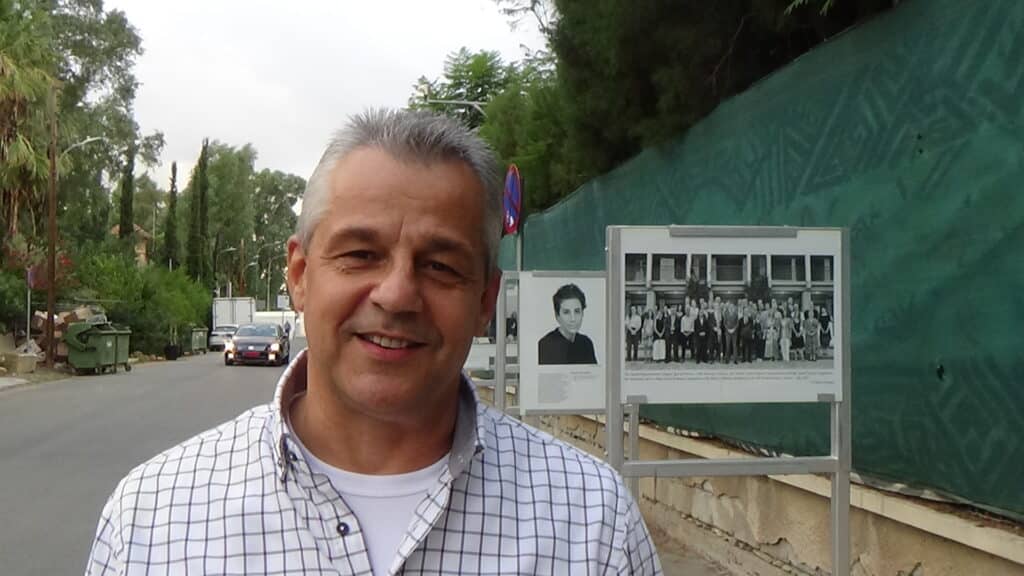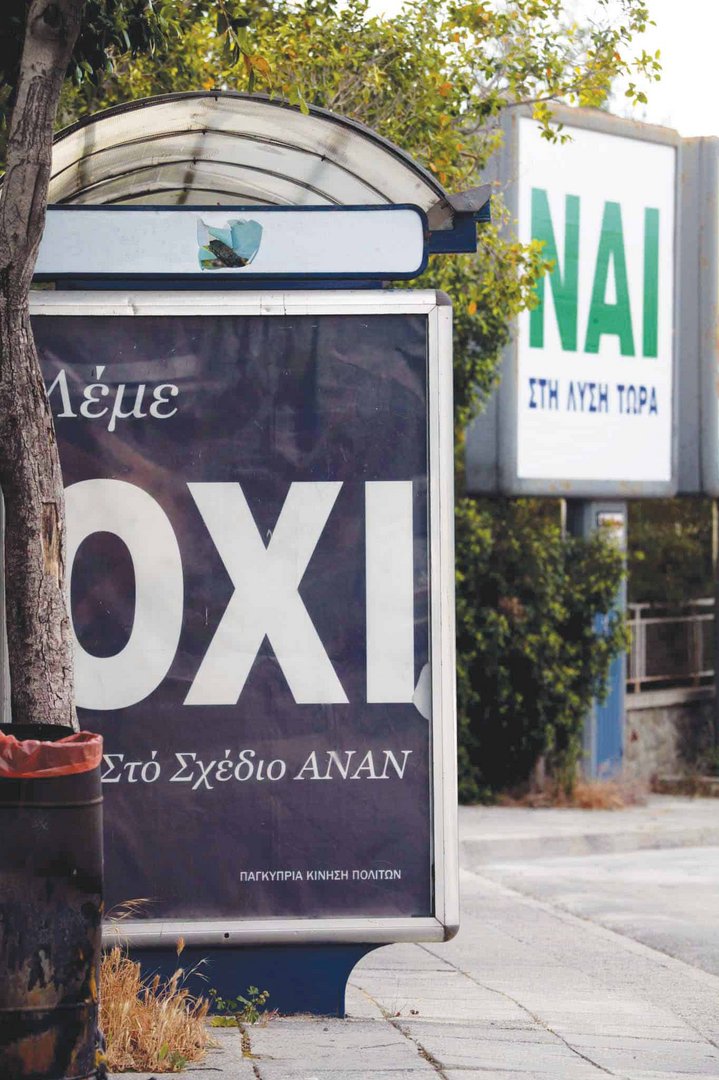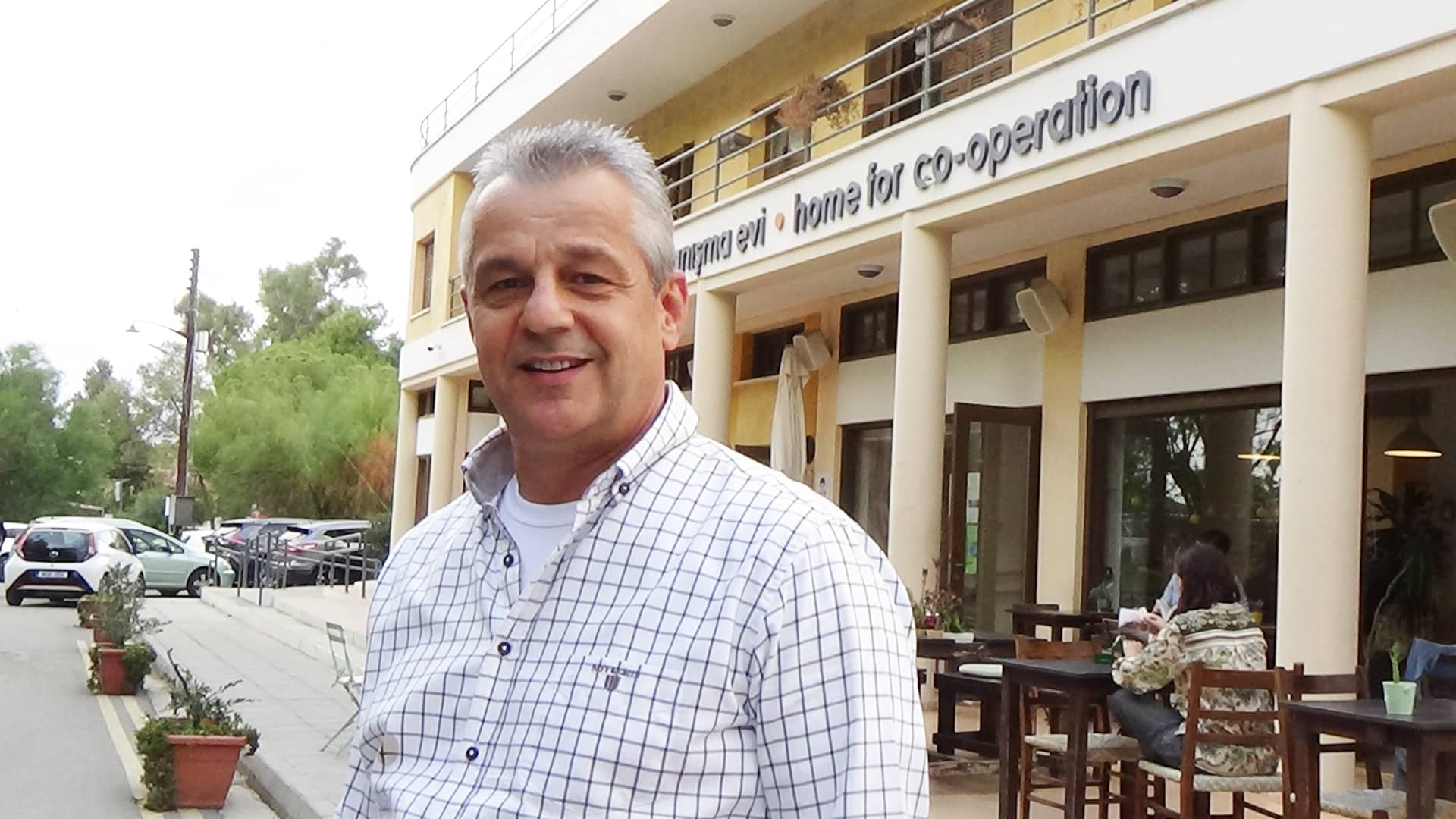Professor and activist Hubert Faustmann tells people what they don’t want to hear on Israel-Gaza, Russia-Ukraine – and the Cyprus problem. As he tells THEO PANAYIDES, he works best when everyone’s mad at him
Hubert Faustmann is a dynamo. “I talk too fast, I move too fast,” he admits, pausing for occasional gulps of frappé. “I’ve always been also, I think, a very Mediterranean German. I don’t look German. Before I turned grey I had dark hair so I looked Italian, French…” His students, I presume, think the world of him. (He’s Professor of History and Political Science at the University of Nicosia.) Politicians – so he says – are less enamoured, mostly because he persists in telling them things they don’t want to hear. He gets up people’s noses in general, especially when it comes to the Cyprus problem. “My line was always ‘If one of the two sides likes you, you’ve probably done something wrong’… If both sides are unhappy, you have a chance of being right!”
It’s not just the Cyprus problem, though it’s that as well; we meet at the Home for Cooperation in the buffer zone, an important venue for his activist work. This is where he used to bring Greek and Turkish Cypriot academics together after the Annan plan, as president of an organisation called the Cyprus Academic Forum. It also relates to what he calls his ‘second job’, organising seminars and commissioning reports as director of the Cyprus office of the Friedrich Ebert Foundation. But it’s not just the Cyprus problem – it’s also, for instance, his teaching work (he is, he affirms more than once, “one of these academics who loves teaching”), where his zest for honest, lively discussion can become a minefield in the current climate.

That stray burst of German is aimed at his eight-year-old daughter, who joins us briefly before heading off with a pint-sized male friend. She’s a “power daughter,” he explains with a big laugh, exhaustingly full of energy (thoughts of apples not falling far from trees flit through my mind). “I love her to bits, but she’s a handful!” Having an eight-year-old child isn’t very common for a 58-year-old dad (Hubert also has a much older son by his first marriage; both wives are Cypriot), then again he also plays futsal twice a week – he played the day before our interview, and scored two goals – and listens to a lot of rock and pop. His lifestyle could easily be that of a man in his 30s – though he doesn’t always see it that way: “My life’s changed,” he shrugs affably. “When I was young, I was going out every night, even when I was in Cyprus. Now it’s very domestic. As a married family man in my late 50s, I spend most of my evenings with my wife, my kid, we watch television or talk… Two or three times you go out, see your friends, you go for Champions League. It’s not the wild life I used to live.”
How wild did that life actually get?
“When I was young, I think there were two or three evenings a year when I was at home alone – maximum. Otherwise I’d be out seeing friends every evening. I was booked three weeks in advance!” He had so many friends that he made himself a social schedule (“It was a very German thing”) and looked for the next free slot when anyone asked him out. “I love people,” he explains. “I’m interested in people. I would’ve studied psychology if I had not studied what I studied.”
That said, he never did anything ‘wild’ in the sense of irresponsible or dangerous; he’s never smoked a cigarette, let alone a joint (though he likes a glass of wine, or two or three). He was just indefatigably sociable: “Most of my evenings were meeting a friend, and talking about their personal lives and what really mattered”. Hubert Faustmann loves to talk, both about himself (he has a healthy ego, and little in the way of false modesty) but also in general; “I grew up discussing”. His father was a banker in Mannheim, staunchly Catholic and conservative; Hubert, on the other hand, is liberal and, since his teenage years, “an agnostic with a strong tendency towards atheism”. Dad was deeply pained when he turned his back on religion – even on his deathbed, he begged him to reconsider – “but it never affected our relationship… He was a very liberal conservative, so you could discuss with him”. That civilised need for discussion, dovetailing with his fascination with people, animates his teaching in classrooms full of Russians and Ukrainians – and, even more, his activism when it comes to the Cyprus problem.
It’s not like he marches in the streets, he makes clear. “I produce policy papers. I might advise people from the German government, or German parliamentarians, on Cyprus, this kind of stuff. I give interviews to newspapers, shaping public opinion to some degree… I’m an academic. My job is to look at things and tell people my opinion about it, if you like – ideally in a well-informed way. This is what academics do. They have time to think, they have time to research, they should hopefully know something and have an opinion.”
The complicating factor is that he’s a foreigner (though he’s lived here for 28 years), an outside perspective, a “reality check”, not just adding to the discourse but frequently saying the unsayable – not to provoke per se, but because honesty is a vital part of having a discussion. “My role in Cyprus is to add a public voice – in my case of dissent, screaming, yelling, warning Cypriots where I think things are going, and I think they’re going terribly wrong. For years I’m predicting that the island will be permanently divided, for years I’m trying to say things differently. That’s why I don’t think I’m very popular in terms of my views on the Cyprus problem.” (His profile in foreign – especially German – media is considerably higher than his name recognition locally.) “I’m pointing out why there’s no solution, and why I believe the problem has become structurally almost impossible – and why I believe the island will head for the worst outcome…
“If you ask me, deep down, I’m very sad,” he goes on, the words pouring out in a voluble stream. “I’m depressed that this island is divided. I know that my children, who are Cypriots, grew up in a divided island and I know that the island will remain divided and that most likely the Turkish Cypriots will disappear, Turkey will take over the north, and the Greek Cypriots will sit in the south with an unresolved conflict with Turkey, not getting an inch of territory back, which is the worst outcome in the long run but the least costly in the short run. I’m saying this for years, I see the politicians making the moves in that direction – and it drives me crazy. And I scream and shout.”

Hubert’s relationship to the island – he arrived by chance on a university excursion, then decided to use the conflict as a case study for his PhD – may fairly be described as schizophrenic. On the one hand, he loves the life, and doesn’t plan to leave till absolutely necessary; “I’m going to die here – but I’m not going to be buried here! I don’t like Cypriot cemeteries. I love German cemeteries, they’re much nicer, much greener”. He even loves the August nights in summer, at least in Nicosia (“even though the days are a human-rights violation”). On the other hand, he’s now spent over two decades sounding the alarm on various issues – he’s also spoken out on corruption, mismanagement of natural gas, etc – even while knowing it’s unlikely to change much. On the national issue, for instance, his activist side strives for reunification even while “the analyst in me tells me that the island is not going to be reunified, and even if it is they’ll probably mess it up”. At best, he quips at one point, “if you’re very, very lucky”, a united Cyprus will be about as politically stable as Belgium: “For half the year, no government – but nobody kills each other”.
How to reconcile these two sides, how to stay sane as an academic gadfly? By playing football and listening to rock music, certainly. (He misses concerts, a rare case of Cyprus being too small for his tastes; he used to go to 30-40 concerts a year.) By teaching, which is probably his greatest love, getting students excited about politics and history. By being busy and “sometimes too busy”, writing book chapters, articles, editing volumes; he has two books coming up (he co-edited both), on the Eoka struggle and Cyprus during WW1. He also edited a journal called the Cyprus Review for many years – which was also, incidentally, how he met his wife, a feminist activist: “She wrote an article, and I gave some feedback she didn’t like”. A case of his in-your-face honesty bearing fruit, for once.
That honesty – like his gushing, dynamic energy – speaks to what may, in the end, be the main defining trait of Professor Faustmann: “I have,” as he puts it, “the world approach of a comedian”. A comedian speaks truth to power. A comedian keeps going because he’s able to see the essential absurdity in the world, in people – even in himself, with his various contradictions. A comedian is brash and talkative, and full of beans. A comedian makes fun of ideology – and Hubert, too, deals in shrewd (though not cynical) realpolitik, which is also why he doesn’t get depressed.
“I’m a bit on the sunny side,” he tells me. “I’m somebody who is very pragmatic if things go wrong in life.” His love of discussion is sunny too, an optimistic faith in talking to people – which may, in the end, be his only ideology, even beyond the usual liberal pieties about democracy and rule of law. “I’m sceptical about higher meanings,” he muses. “So maybe the meaning of life is to have a good time, and bring up the next generation, and continue the game of life that somehow was set in motion, and leave the place as a little bit of a better place than you found it. That’s my ambition.” The human comedy, emphasis on human. And on comedy.







Click here to change your cookie preferences